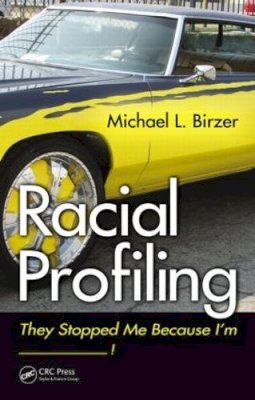
Racial Profiling: They Stopped Me Because I'm ------------!
Michael L. Birzer
Many racial minority communities claim profiling occurs frequently in their neighborhoods. Police authorities, for the most part, deny that they engage in racially biased police tactics. A handful of books have been published on the topic, but they tend to offer only anecdotal reports offering little reliable insight. Few use a qualitative methodological lens to provide the context of how minority citizens experience racial profiling.
Racial Profiling: They Stopped Me Because I’m ———! places minority citizens who believe they have been racially profiled by police authorities at the center of the data. Using primary empirical studies and extensive, in-depth ... Read more
- What racial profiling is, its historical context, and how formal legal codes and public policy generally define it
- The best methods of data collection and the advantages of collecting racial profiling data
- How certain challenges can prevent data collection from properly identifying racial profiling or bias-based policing practices
- Data analysis and methods of determining the validity of the data
- The impact of pretextual stops and the effect of Whren v. United States
A compelling account of how minority citizens experience racial profiling and how they ascribe and give meaning to these experiences, the book provides a candid discussion of what the findings of the research mean for the police, racial minority citizens, and future racial profiling research.
Michael L. Birzer was recently interviewed on public radio about his book, Racial Profiling: They Stopped Me Because I’m ———!
Show LessProduct Details
About Michael L. Birzer
Reviews for Racial Profiling: They Stopped Me Because I'm ------------!
